The countdown to the North American solar eclipse on April 8 is well underway. It’s pretty exciting, we think – largely because we now know what causes it. Imagine, however, if our astronomy was less advanced. The sudden darkness would be terrifying.
Understandably, ancient societies came up with alternative reasons for the phenomena, while writers have long used eclipses as harbingers of darkness.
From Shakespearean omens to sun-eating dragons and an eclipse that ended a war, here are some of history and literature’s most fascinating eclipse interpretations.
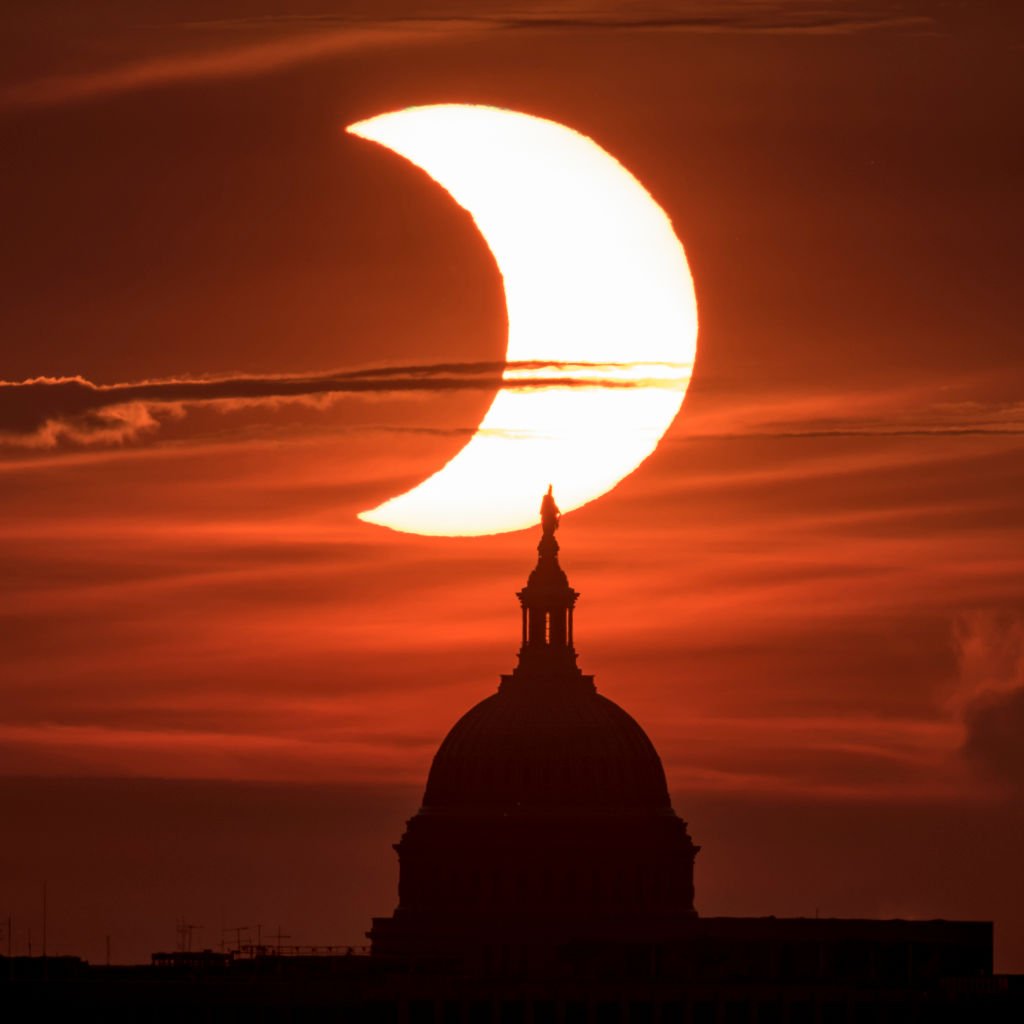
April 8 is a pretty special occasion. The Moon’s proximity to Earth means this solar eclipse will last longer than the one that occurred in 2017, and the contiguous United States will not experience another total solar eclipse again until 2044. It is understandable, therefore, why there’s so much excitement about it, with millions of Americans expected to take to the streets when the darkness descends.
When they do, they will do so with excitement and wonder, secure in the knowledge of why this is happening: the Moon is passing between the Sun and the Earth, casting a shadow across our planet. But this knowledge hasn’t always been the case, and some of the historical reactions to eclipses make for rather fascinating modern reading.
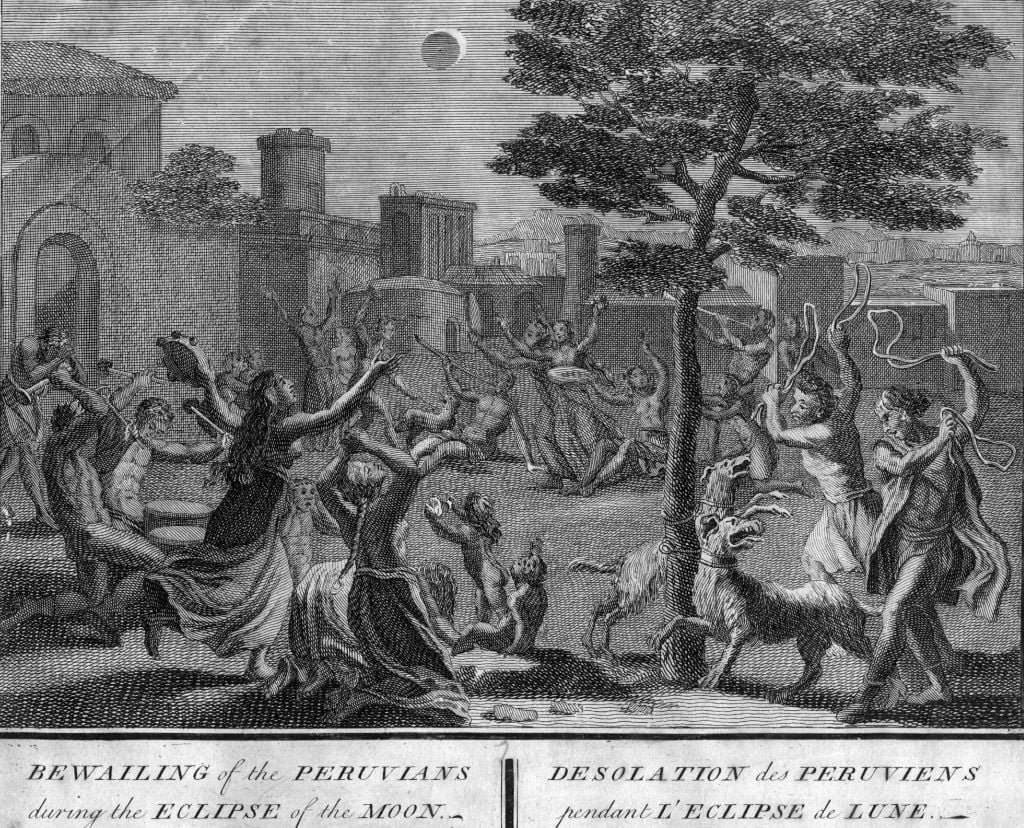
Eclipses were typically interpreted to be bad and it’s easy to see why. The sun is swallowed and the world is plunged into darkness. Even if everything seemingly went back to normal minutes later, a full eclipse would be at best spooky, and at worst a sign of catastrophic things to come.
One of the earliest foreboding examples on record is in Homer’s epic poem, The Odyssey. When Odysseus finally returns to Penelope and Ithaca, a seer has a vision of what appears to be an eclipse – “the Sun has been obliterated from the sky, and an unlucky darkness invades the world”. Penelope’s suitors are almost immediately killed.
Interestingly, this mention of an eclipse has been used in arguments around the date of the work. Astronomers have calculated that an eclipse occurred over the Greek islands on April 16, 1178 B.C. There’s obviously no way of knowing for sure, and most scholars remain skeptical about the link, but some say this eclipse is a sign of when Homer’s work was set.
Elsewhere, Incan culture believed that solar eclipses were a sign of displeasure from their sun god, known as Inti. As Inti was usually a kind deity, eclipses were considered serious. Spiritual leaders would both look to diagnose the source of his anger, and then treat it with sacrifices – sometimes even human. Fasting was also a common price to pay, and the Emperor would retreat from the public eye following an eclipse.
Tribes in the Choctaw Nation, meanwhile, believed Fvni Lusa, a mysterious “Black Squirrel” would get hungry and eat the Sun. You can watch more about the story in the video below.
They were not the only ones who thought the Sun was being eaten. In ancient China, people believed that solar eclipses were evidence of celestial dragons eating the star at the center of our solar system. During lunar eclipses, these same otherworldly dragons would eat the Moon. The term for an eclipse was “shi” – meaning “to eat”.
During this time in China, eclipses were also said to foretell the future of the emperors. On one specific occasion over 4,000 years ago, this led to the death of a pair of astronomers. It was during the reign of Chung K’ang (B.C.E. 2159 – 2146) when the Emperor only learned of an ongoing eclipse from a noise in the streets. His subjects were hitting pots and pans in an effort to drive away the dragons and stop them from eating the Sun. Hsi and Ho, the Emperor’s two court astronomers, were held responsible for not predicting the eclipse and were swiftly beheaded.
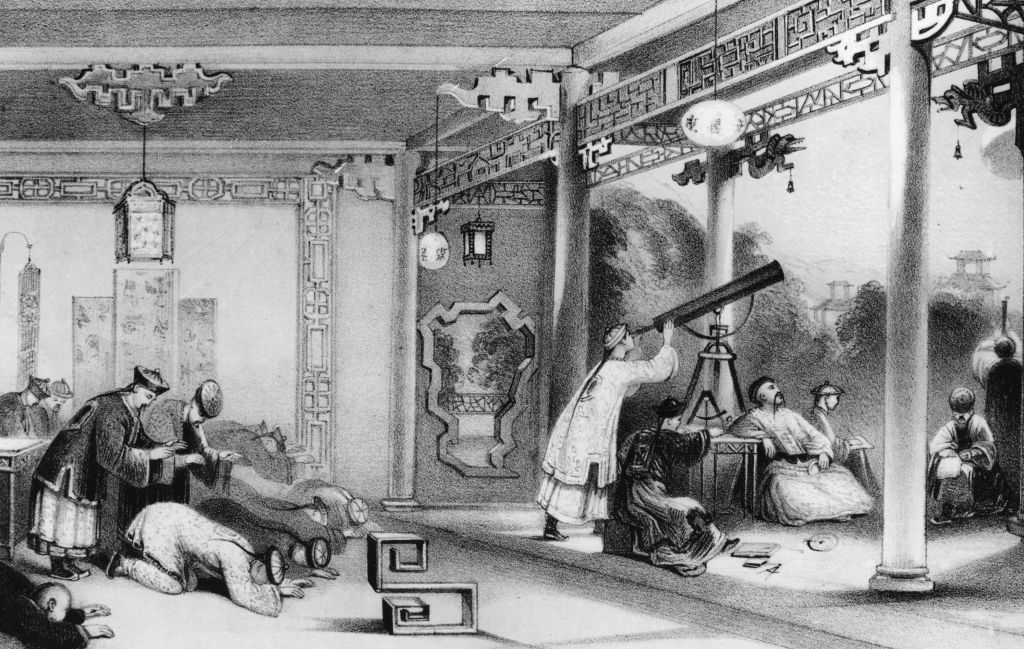
In India, Ancient Hindu mythology provides a different, more violent explanation for eclipses. Legend states that a demon named Rahu sought to drink the nectar of the gods so he could become immortal. He attempted to attend a banquet of the gods disguised as a woman, but was discovered by the deity Vishnu and beheaded (we’re getting a theme here). Rather than the Moon blocking the Sun, or vice versa, they said eclipses are caused by Rahu’s head flying across the sky in this version of events.
Another Hindu legend says that Rahu successfully took a sip of the Gods’ nectar, however was killed before it could immortalize his body, so only his head lives on. This immortal head now forever chases the Sun.
By 610 BC, astronomers in ancient Greece were beginning to be able to tentatively predict when eclipses might occur – though they could have no idea the effect that one would have when it arrived mid-battle that year.
The philosopher Thales foresaw that the next eclipse would happen during a war between the Median and the Lydian armies, according to the accounts of Herodotus. The story goes that when the Sun disappeared from the sky, the competing factions “were so amazed that they stopped fighting and signed a peace treaty”. It’s one of the cheerier eclipse stories.
Read More: When 76 beavers parachuted into Idaho
If we skip forward a bit further, we arrive at the Bible and, as such, many of the omens, stories and beliefs that have shaped the western world over the last 2,000 years. Biblical accounts, specifically in the Gospels, as in Matthew 27:45, say that “darkness came over the land” during and after the crucifixion of Christ. NASA was able to pinpoint an eclipse to 33 AD, the year Jesus is believed to have died, adding more plausibility to these claims, yet we also have records that Jesus was crucified just after Passover, a time of the year when eclipses can’t occur.
In the West, this might be the first evidence of a written correlation between eclipses and misfortune, depending on how you interpret Homer’s eclipse. Regardless, the idea would shape much of the western literature on eclipses that would follow.

Where to begin other than Shakespeare? During his lifetime, in 1598, the British Isle experienced a near-total eclipse from the tip of Cornwall, England, to the north of Scotland. Whether or not this had any direct bearing on the world’s most famous author, he repeatedly used eclipses to signify dark, negative feelings.
In the story of King Lear, the character Gloucester says: “These late eclipses in the sun and moon portend no good to us…Though the wisdom of nature can reason it thus and thus, yet nature finds itself scourged by the sequent effects.” Unlike other interpretations listed above, this indicates that while humans may have had the astronomical understanding of why eclipses happen, they were considered, in effect, another kind of natural disaster.
In Othello, published five years after the 1598 eclipse, Shakespeare uses it as a metaphor for the psychological darkness of the story’s titular character. He writes:
“My wife, my wife! What wife? I have no wife. O insupportable! O heavy hour!
Othello (5.2.121)
Methinks it should be now a huge eclipse
Of sun and moon, and that th’ affrighted globe
Should yawn at alteration.”
And then there is the three witches’ brew in Macbeth, one of the most obvious examples of darkness and evil in Shakespeare. In Act 4, Scene 1, as they brew their potion and cackle “double, double toil and trouble”, one of the ingredients is “…the slips of yew, slivered in the moon’s eclipse”. A yew is a poisonous tree, associated with death, and if this wasn’t enough, the poison was taken during a lunar eclipse.
Another lasting work from a similar time is John Milton’s epic poem, Paradise Lost. In it, Milton is even more categorical in his link between eclipses and disaster. The “new sun risen,” he writes, is “shorn of his beams, or, from behind the moon, / In dim eclipse disastrous twilight sheds / On half the nations, and with fear of change.”
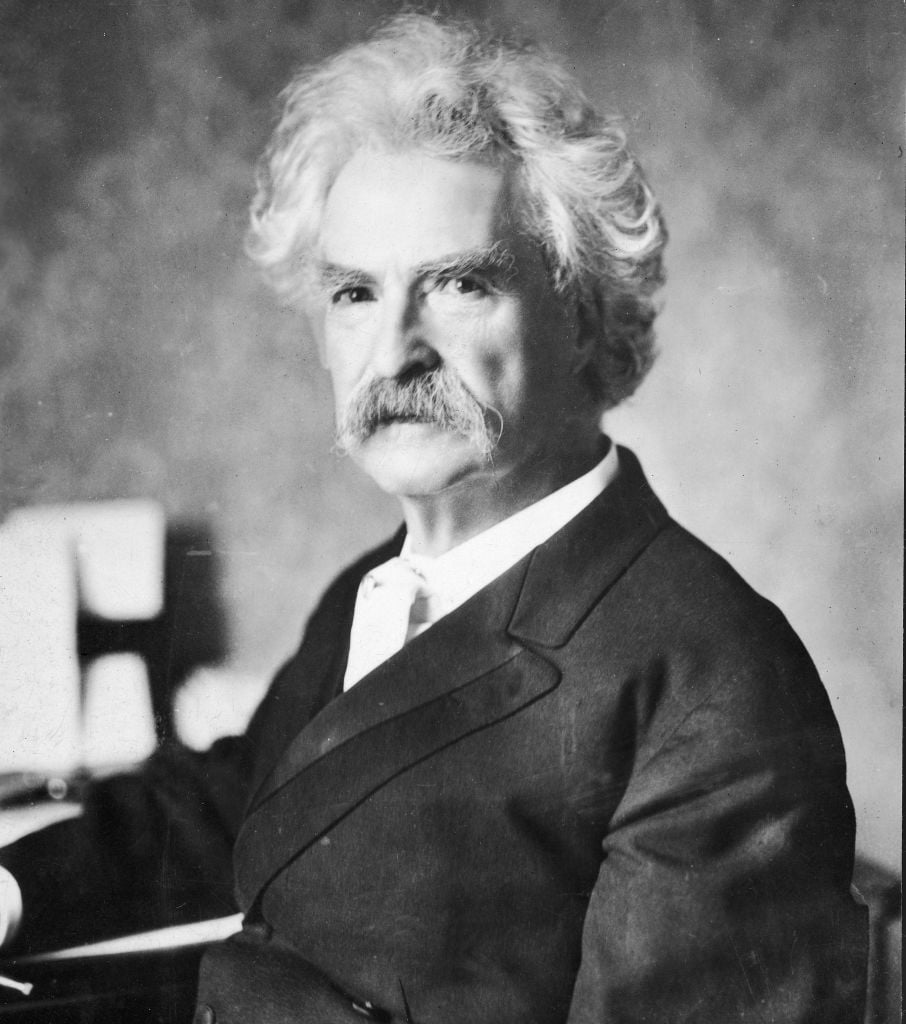
In Mark Twain’s A Connecticut Yankee in King Arthur’s Court, published in 1889, the American great is able to take some of the fanatical ideas around eclipses and use them for a more comic effect. As the novel’s title suggests, the protagonist Hank Martis finds himself transported back to the time of King Arthur. The year is 528 and Martis realizes that he once learned about an eclipse that June. Facing accusations of witchcraft and eventually a death sentence for his peculiar modern ways, Martis predicts the eclipse and claims to have caused it.
“With the falling of the first shadow of that darkness you shall see them go mad with fear,” wrote Twain. “You could see the shudder sweep the mass like a wave.”
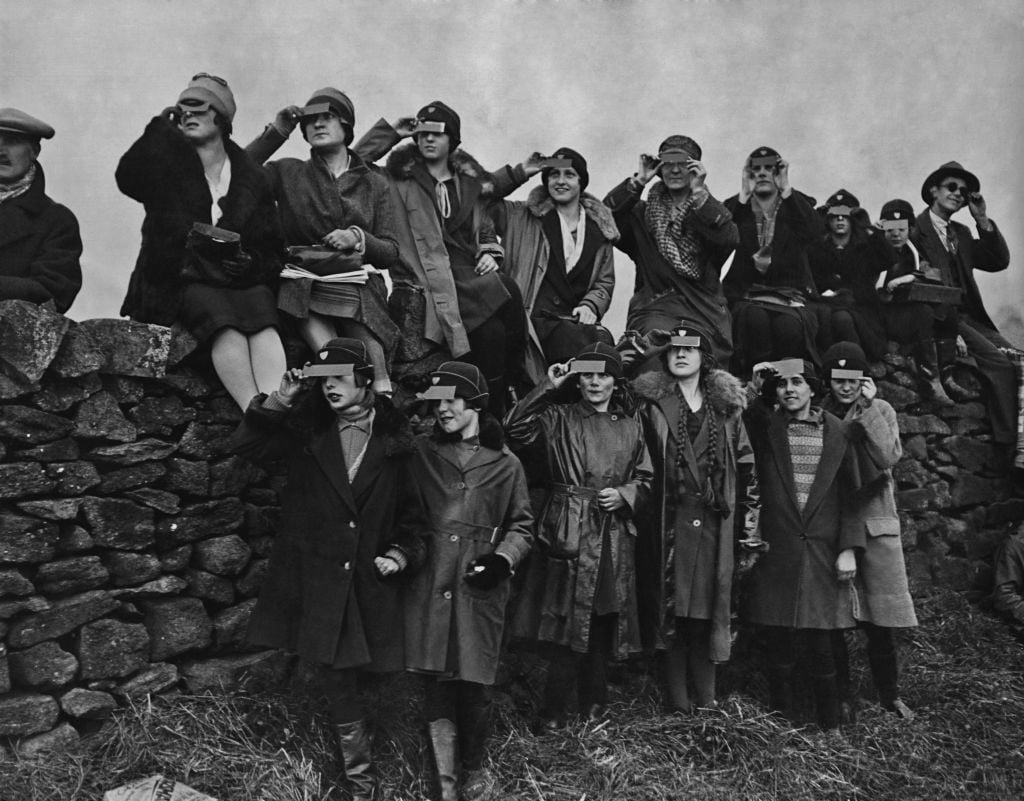
Hank Martis is released and becomes the second most powerful person in the kingdom. Obviously, the ability to predict the future helps, but it also plays on the unique awe of eclipses. Unlike other examples here, Twain uses an eclipse to help a character escape death, rather than using the phenomena as a harbinger of it.
And finally, more recently still, we turn to Stephen King. He is a master of horror, and in his work, Dolores Claiborne, adapted into a film of the same name, King uses an eclipse as a backdrop during some of the story’s darkest moments.
These are just some of the historical interpretations and artistic uses of eclipses. Such is our lack of control over them, it seems likely that they’ll continue to be the subject of fascination and wonder.





